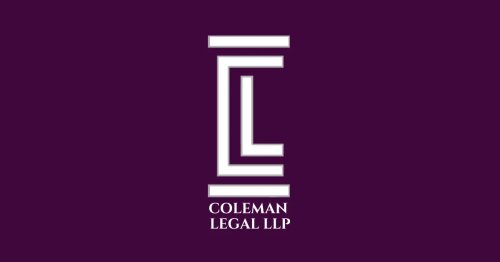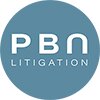Best Discrimination Lawyers in Dublin
Share your needs with us, get contacted by law firms.
Free. Takes 2 min.
List of the best lawyers in Dublin, Ireland
About Discrimination Law in Dublin, Ireland
Discrimination law in Dublin, Ireland, is designed to protect individuals from unfair treatment based on various personal characteristics. The protection is grounded in Irish and EU legislation, ensuring equality and fairness in most aspects of public and private life. Discrimination can occur in various contexts, including employment, education, the provision of goods and services, and housing. The Irish Human Rights and Equality Commission (IHREC) plays a significant role in promoting and enforcing these laws.
Why You May Need a Lawyer
Discrimination cases can be complex and emotionally charged. A specialized lawyer can help in a variety of situations, such as:
- Filing a claim against an employer for unfair dismissal based on discrimination.
- Dealing with instances of discrimination in accessing public services or accommodations.
- Addressing issues of discrimination in educational settings.
- Negotiating settlements or mediations to resolve discrimination disputes.
- Advising on your rights and the legal process involved in pursuing a claim.
Local Laws Overview
The primary pieces of legislation governing discrimination in Dublin, Ireland, include the Employment Equality Acts 1998-2015, the Equal Status Acts 2000-2018, and various EU directives. Key aspects to note are:
- Protected Characteristics: Gender, civil status, family status, sexual orientation, religion, age, disability, race, and membership in the Traveller community.
- Employment Equality: Prohibits discrimination in recruitment, promotion, training, pay, and dismissal.
- Equal Status Acts: Outlaws discrimination in the provision of goods and services, accommodation, and educational establishments.
- Reasonable Accommodation: Employers and service providers are required to take appropriate measures to accommodate people with disabilities.
Frequently Asked Questions
What is considered discrimination under Irish law?
Discrimination occurs when a person is treated less favorably than another person in a comparable situation, based on a protected characteristic.
Can I file a discrimination claim against my employer?
Yes, you can file a claim if you believe that your employer has discriminated against you based on any of the protected characteristics.
Is harassment considered a form of discrimination?
Yes, harassment is considered a form of discrimination under Irish law and includes unwanted behavior that violates your dignity or creates a hostile environment.
What should I do if I experience discrimination?
You should document the incident, collect any evidence, and seek legal advice immediately to understand your rights and options.
Can I resolve a discrimination issue without going to court?
Yes, discrimination disputes can often be resolved through mediation, conciliation, or settlement agreements without going to court.
What compensation can I receive in a discrimination case?
Compensation can include financial damages, reinstatement to a job, or other remedies that aim to address the harm caused by the discrimination.
Is there a time limit for filing a discrimination claim?
Yes, there are statutory time limits for filing claims, which generally range from six months to a year from the date of the discriminatory act.
Can discrimination occur in educational settings?
Yes, schools and educational institutions are required to provide equal treatment and reasonable accommodations to avoid discrimination.
How do I prove discrimination in a legal case?
Proof may require showing that you were treated less favorably than others in a similar situation and that this treatment was based on a protected characteristic.
Where can I get more information or help regarding discrimination?
You can contact the Irish Human Rights and Equality Commission (IHREC) for resources, advice, and assistance related to discrimination issues.
Additional Resources
There are several resources available for those seeking information or help with discrimination-related issues in Dublin, Ireland:
- Irish Human Rights and Equality Commission (IHREC): Offers guidance, support, and information on human rights and equality.
- Workplace Relations Commission (WRC): Provides information on employment rights and handles complaints of discrimination in employment.
- Citizens Information: Offers comprehensive advice on your rights and the complaints process.
- Legal Aid Board: Provides legal advice and representation for those who may need financial assistance.
- Local Solicitors: For personalized legal advice, consider consulting with a local solicitor specializing in discrimination law.
Next Steps
If you believe you have been discriminated against and need legal assistance, consider the following steps:
- Consult with a Lawyer: Find a solicitor who specializes in discrimination law to advise you on your case.
- File a Complaint: Depending on your situation, you may file a complaint with the Workplace Relations Commission or pursue other legal avenues.
- Gather Evidence: Collect any relevant documentation, witness statements, and other evidence to support your claim.
- Follow Legal Advice: Work closely with your legal advisor to understand your rights and the best course of action.
Seeking professional legal advice early can significantly impact the outcome of your case. Don’t hesitate to reach out for help if you believe you have been a victim of discrimination.
Lawzana helps you find the best lawyers and law firms in Dublin through a curated and pre-screened list of qualified legal professionals. Our platform offers rankings and detailed profiles of attorneys and law firms, allowing you to compare based on practice areas, including Discrimination, experience, and client feedback.
Each profile includes a description of the firm's areas of practice, client reviews, team members and partners, year of establishment, spoken languages, office locations, contact information, social media presence, and any published articles or resources. Most firms on our platform speak English and are experienced in both local and international legal matters.
Get a quote from top-rated law firms in Dublin, Ireland — quickly, securely, and without unnecessary hassle.
Disclaimer:
The information provided on this page is for general informational purposes only and does not constitute legal advice. While we strive to ensure the accuracy and relevance of the content, legal information may change over time, and interpretations of the law can vary. You should always consult with a qualified legal professional for advice specific to your situation.
We disclaim all liability for actions taken or not taken based on the content of this page. If you believe any information is incorrect or outdated, please contact us, and we will review and update it where appropriate.











